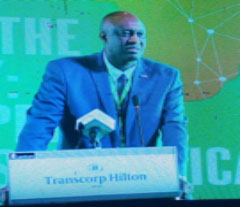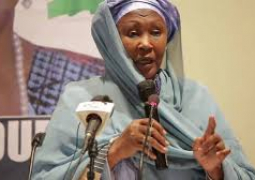
Commissioner General Darboe was accompanied by directors from various departments and other members of the GRA Board.
This year’s theme is ‘Exploring Untapped Revenue Sources in Arica’.
In his keynote address, WATAF Chairman Darboe says the forum provides a platform to encourage strong collaboration amongst all ECOWS Member States towards the improvement of the quality of revenue administration in their respective states.
According to Mr. Darboe, since the advent of the internet, the world economy is rapidly transforming from its traditional nature into a digital one. “The digital economy is increasingly becoming the economy itself. This new economy comes with challenges for tax policymakers and it is therefore no surprise that this subject is now the most topical of the very many contemporary issues in international taxation.”
According to him, untapped digital economy could be the solution to Africa’s fiscal deficit problem.
“Taxation of the digital economy could be an important measure for governments to generate new fiscal space and increase tax revenues. However, taxing the digital economy is particularly challenging in countries with low tax administration capacity. In the face of donor fatigue and the high debt profiles of many African countries, devising means to tax the untapped digital economy could be the solution to solving Africa’s perennial fiscal deficit problem. Africa has the largest youthful population and a fast-growing internet penetration. These two factors present a great opportunity to African countries to maximise revenue to bridge the infrastructure gap upon which the digital economy hinges. The digital economy is no more a dream. It is upon us. It presents a great opportunity for Africa. To untape this revenue source, we must confront the current challenges of taxing the digital economy to unlock its huge potentials by designing tax rules that are fair and equitable.”
“Policymakers around the world are steep in finding workable solutions on taxing the digital economy and in that regard, different policy options to address these challenges are being floated,” he pointed out.
“The digital economy represents today about 15% of the global world GDP with a net worth of US$ 11.5 trillion dollars and it is projected to grow as access to internet in developing countries becomes cheaper, faster, and reliable. The outbreak of the COVID-19 pandemic in 2020 and 2021 has also positively impacted online retail sales as a result of lockdown and social distancing measures.”
“The use of new digital technology has not only transformed traditional business models that pose challenges to how economies have traditionally been taxed, it has also created untapped revenue sources for Africa. Unfortunately, Africa’s participation in this new digital economy has left a lot to be desired in terms of untapped revenues. The low participation of Africa in this new digital economy is not due to lack of foresight or laziness on our part but due to the very many challenges that taxing the digital economy presents.”
Darboe indicated that digitalisation has created a new borderless world economy, which, in turn, has brought to the fore how increased world trade affects the ability of governments to tax economic activities to fund public projects.
According to him, increased international digital trade has put in check established tax rules, needing to be updated. “In the absence of an international digital tax system and a global tax authority, the digital debate demands multilateral cooperation mechanisms and compromise from all parties involved.”
“Therefore, it is incumbent on all of us to find solutions to tackle the challenges that the digital economy brings with it. This Forum has provided the right platform for dialogue among national tax authorities with a view of finding workable solutions to this untapped revenue source by forging inclusive cooperation and dialogue among national tax authorities on international tax matters. This effort is especially relevant in the midst of the COVID-19 pandemic when countries are facing an unprecedented fiscal deficit and online commerce is growing worldwide.”





